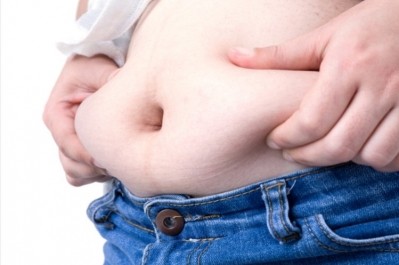Irish tax plans place supplements out of reach for many people, says expert

The timing of professor John Nolan’s comments come as the country is set to introduce a levy on food supplements from 1st November 2019, much to the dissatisfaction of Ireland’s industry groups.
Highlighting AMD as the leading cause of sight loss in Ireland’s over 50s category professor Nolan reiterates the importance of early supplement use as vital, as is continuing to take them on an ongoing basis.
“Their cost is a significant factor on people continuing with their use, any level of taxation on these products is a step in the wrong direction and needs to be weighed against the enormous cost of treatment for conditions such as AMD,” he adds.
“As things stand these supplements are available to people at their own expense – the cost is not supported by the State but at least it is not being taxed.
“The very idea of taxing them in a similar way as fizzy drinks, burgers and chips etc would be a massive mistake and could put severe hardship on the people who find them essential to reduce their risk of blindness.”
Supplement story
On December 27th, 2018, Revenue proposed the application of the standard VAT rate for all food supplements, including vitamins, minerals, probiotics and fish oils on the basis that they no longer consider them to be foods for VAT purposes.
The 23% rate was to come into effect on 1st March 2019, bringing thousands of products into the standard VAT category for the first time in over 40 years.
Following a massive public outcry and the delivery of a 70,000 strong public petition, the Minister of Finance asked Revenue to reconsider.
The petition succeeded in convincing Ireland’s Revenue Commissioners to postpone the introduction of the tax until 1 November.
“I have been contacted by people who need to use these supplements and they are extremely worried by the prospect of a significant price increase,” adds professor Nolan, who is also the founder of the Nutrition Research Centre Ireland.
“We have quite rightly seen the Government introduce a tax on sugary drinks as a means of discouraging their consumption.
“ It makes no sense to introduce an across the board Tax on Food Supplements some of which can have a very positive effect on conditions such as AMD and therefore could in fact be a help to the Exchequer in saving money on massively expensive future treatments.”
Brexit considerations
Last month, industry group Health Stores Ireland added to the complexity by pointing out that imported supplements could also face customs tariffs in the event of a no deal Brexit.
“If the UK crashes out of the EU on 31 October, new customs tariffs will apply to goods traded between the UK and Ireland and it is expected that imports of food supplements from the UK into Ireland could attract a 12.8% tariff.
“Potentially, Irish consumers of food supplements would be facing a cumulative increase of almost 40% (38.7%) overnight at the beginning of November.
“Businesses are already investing heavily in stock in an attempt to avoid the very real threat to continuity of supply.
“A 40% rise in price will see a major decline in health supplement consumption, a knock impact on the health of citizens and a threat to hundreds of retailers across Ireland.
“The Government cannot prevent the UK crashing out of the EU and the resultant WTO tariffs, but it can move to prevent the application of 23% of food supplements.”
The tax measures were met with fierce opposition in an April/May consultation in which the government received 121 submissions that overwhelmingly called for the retention of the zero rate.
Leader of the Labour Party, Brendan Howlin TD, repeated his support for no change in the zero rate adding that a 23% levy would put many small firms “under pressure, at a time when they are already facing potential extra costs from Brexit as many food supplements come into Ireland from the UK.
“Taxing food supplements at a higher rate than unhealthy junk food makes no sense and is likely to nudge people’s choices in the wrong direction,” he said.






















